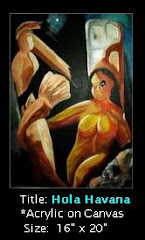
There's a holdup in the Bronx
Brooklyn's breaking out in fights
There's a traffic jam in Harlem
That's backed up to Jackson Heights
There's a scout troop short a child
Khrushchev's due at Idlewild
CAR 54 WHERE ARE YOU?
If you were around in 1961, and cognizant of your surroundings, you undoubtedly remember Gunther Toody and Francis Muldoon, two of the (mythical) 53rd Precinct's finest . . .
. . . well, they worked there anyway.
What is truly amazing is how well this show holds up, nearly 50 years (and yes, I winced when I wrote that) after I first saw it. The show aired Sunday nights, at 8:30pm, immediately following Disney's Wonderful World of Color (a rare color show in 1961!), and before the top rated (also in color) Bonanza.
Although it was scheduled opposite The Ed Sullivan Show , Car 54 managed respectable ratings, finishing in the top 20 during its first year. Ratings declined in the second year, however, and the show was canceled.
We are left with 60 30-minute B&W episodes, and many fond memories. Toody and Muldoon you see, for all their flaws, were likable buffoons. Inept as crime stoppers, perhaps, but blessed with big hearts.
Of course, the two stars Joe E. Ross and Fred Gwynne began their careers long before they became household names on Car 54.
Ross, born Joseph Roszawikz in 1914 in New York City got his start as a nightclub and Burlesque comedian in the late 1930s. After a stint in the Army Air Corps during WWII, Ross returned to the stage, honing his skills as a `Top Banana'.
A word here about Burlesque.
Today, most people associate Burlesque with tawdry strippers introduced by 3rd rate comics. Well, towards the end, when movies (and later television) siphoned away their audience, it did become pretty seedy.
But it wasn't always so.
For nearly 80 years, Burlesque here in the United States and in England was a reasonably respectable part of show business. Not as respectable as vaudeville, perhaps, but not likely to be raided by the police either.
Performers worked their way up from Burlesque to get to Vaudeville, often spending years on the Burlesque circuit.
To `Burlesque' something means to `parody' it, and that's what Burlesque shows were all about. A burlesque show might contain contain a couple of extended skit's, or spoofs, on well known Operas, Broadway Shows, or the foibles of the upper class. In between would be an array of aspiring singers, acrobats, comics, jugglers, chorus girls, magicians and specialty acts.
By the 1920's, silent movies were drawing people away from the Burlesque houses - and so the humor became courser, more ribald, and the show girls more daring - in an attempt to compete. By the 1950's, Burlesque had become pretty sleazy, and vaudeville was long dead.
Luckily, there was a new medium where the talent could go. Television, which in it's early years, borrowed much from the Vaudeville and Burlesque formats.
Many of the great stars of film, radio, and television started on the Burlesque stage. Jackie Gleason, Bert Lahr, Fanny Brice, W.C. Fields, Red Skelton, Phil Silvers, Joey Faye and Bob Hope to name a few.
The goal was to become the Top Banana, or top comic. Second, and third bananas were lesser comedians on the bill, who invariably ended up with a pie or seltzer in their face six shows a day.
Joe E. Ross, after more than 15 years on the Burlesque and night club circuit, was spotted by Phil Silvers (another former Top Banana) and Nat Hiken at a Miami Night club called Ciro's. They were working on putting together a new television series, to be called You'll Never Get Rich (aka The Phil Silvers Show).
They hired Ross on the spot to play the role of Ritzik, the mess cook who was an easy mark for Sgt Bilko's latest con. Whenever Ritzik (Ross) had an inspiration, he'd exclaim `Ooh, Ooh!" - which was Ross's way of covering that he'd forgotten his line.
It became his signature.
After Bilko ended, Nat Hiken, who was considered the best comedy writer on television during the 1950's, drafted Ross and another alumni from the Phil Silvers Show, Fred Gwynne to play the leads in CAR 54 Where Are You?
Hiken had been a writer for the wonderfully droll, and acerbic Fred Allen Show on Radio, and then for Milton Berle's Texaco Star Theatre. The Phil SIlvers Show was another of his creations. In all, Hiken won 8 Emmy awards over the years.
Gwynne's career began in 1952 when he landed his first Broadway role, in Mrs. McThing, which starred Helen Hayes. He had a small part in On The Waterfront (1954), and then appeared in a number of live TV shows, particularly Studio One.
He also made two memorable appearances on the Bilko Show.
But it was Car 54 which made him a household name.
It would not be his biggest, or most famous role, however. In 1964, he would return to television wearing 40 lbs of prosthetics, and 4" lifts, as Herman Munster.
One of his co-stars on CAR 54, Al Lewis, would go on to star in the Munsters with Gwynne, playing Grandpa Munster.
Despite the broad comedic roles that made him famous, Gwynne was actually a well respected character actor, and is well remembered for his numerous contributions to the CBS Radio Mystery Theatre of the 1970's, along with movies such as Pet Sematary, Ironweed, and My Cousin Vinny.
Gwynne died in 1993, at the age of 66, from pancreatic cancer.
Ross continued to work almost up until his death in 1982, but never had another hit show. He played Gronk in the unfortunate `It's About Time' comedy, opposite Imogene Coca but found little work after that.
Ross would get a good deal of voice over work, in cartoons like Hong Kong Phooey and and The New Tom & Jerry Show. But his film work in the 1970's would run the likes of Linda Lovelace For President (1975) and Gas Pump Girls (1979).
Ross died in 1982 while performing on a nightclub stage. On his tombstone are inscribed the words "This Man Had a Ball". He was given a comic's farewell, at his funeral.
GUBA has 51 episodes of Car 54 on their site. I'm unsure as to the copyright on these show, so how long they will remain there is anyone's guess. Get them while you can.
See a complete listing of their offerings.
And to get you started, a handful of direct links to the show.














No comments:
Post a Comment